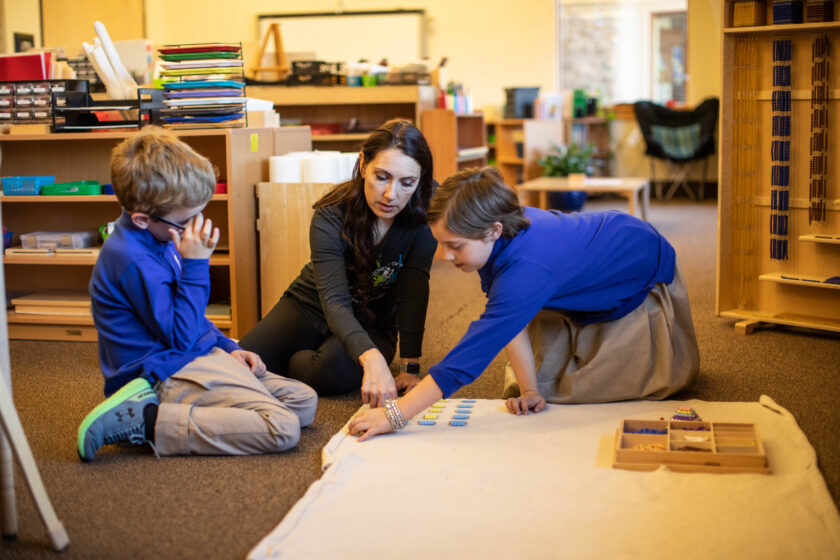
Grades 1-3
Lower Elementary
Expanding Horizons with a Holistic Approach
Our Lower Elementary Program is designed to foster intellectual growth, creativity, and independence in every child. Through an integrated curriculum that connects subjects like math, science, language, and geography, children transition from concrete to abstract thinking, becoming confident learners with the skills to thrive academically and socially.
At this stage, the role of the Montessori guide is essential. Guides introduce key information and materials across subject areas and then support students in pursuing their own projects to explore different facets of each topic. Rather than relying on frequent tests, our guides maintain a close understanding of each child’s progress, keeping detailed records of their work and achievements. This personalized approach allows guides to adapt lessons to individual needs, ensuring that each child reaches their full potential.
Program Highlights:
- Individualized Learning: Tailored to each child’s developmental needs and interests, fostering independence and confidence.
- Collaborative Projects: Children engage in group work that promotes social skills, communication, and teamwork.
- Practical Life Skills: Montessori encourages children to develop self-discipline and responsibility through activities like gardening, cooking, and care for the environment.

Engaging Activities in Our Elementary Program
- Hands-on Science Experiments: Explore biology, physics, and chemistry through real-world applications like plant biology, simple machines, and ecosystems.
- Math Exploration: From basic arithmetic to geometry, children use Montessori materials to deepen their understanding of mathematical concepts.
- Language Development: Building strong communication skills through reading, writing, and public speaking, encouraging creativity in language arts.
- Outdoor Learning & Nature Studies: Children connect with nature through activities like gardening, environmental science, and outdoor exploration.
- Artistic Expression: Students express creativity through painting, drawing, music, and drama, enhancing their imaginative and emotional development.
- Sports & Physical Activities: Daily physical education, team sports, and games help develop coordination, teamwork, and a love for movement.
- Leadership & Community Roles: Children take on leadership roles within the classroom and participate in community projects, building responsibility and civic engagement.